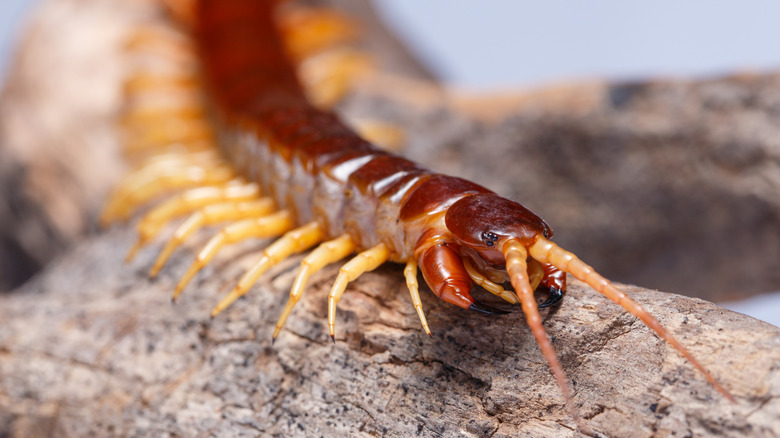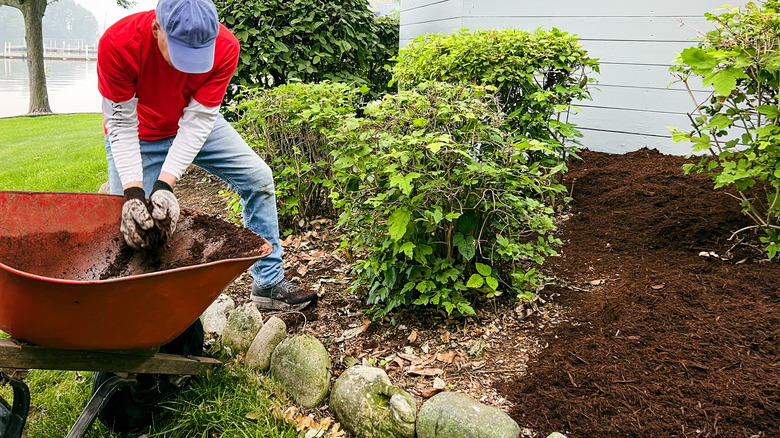The Mulching Tip That Will Help Keep Centipedes Out Of Your Home
It can be an unsettling experience to run across creepy-crawly insects in your house — and the more numerous the legs, the more unnerving the encounter. You're most likely to stumble across unwelcome centipedes in your home when they're hunting for an alternative source of moisture — like when the weather is unseasonably dry and sweltering.
Check for any hidden leaks under your sink or around other bathroom fixtures, and make sure that your basement isn't harboring any areas of dampness. If you don't find any signs of excessive moisture but you're still seeing centipedes regularly, the problem may be with your landscaping. Raking your mulch into thinner layers and keeping it from directly touching your house will make it harder for centipedes to make their way into your home.
You can't control the weather, but there are steps you can take to keep centipedes out of your house, even if they're accidentally finding their way in during wet weather. If seeing a centipede is a rare occurrence, you probably don't have much to worry about. However, if you're seeing a lot of them, particularly in areas such as your basement or bathroom, it could indicate that you have water leaking into your home or that moisture is entering your house in another way. Since centipedes are predators who will make a quick meal out of many annoying insects, such as roaches and ants, you may want to reconsider squishing the occasional centipede.
Landscaping techniques to control centipedes
Even if undetected, there's a good chance centipedes are hiding in your mulch, leaf debris, and bushes outside your house. There are so many ways to use mulch around your home and benefit your garden that it's not uncommon for it to extend up to your home's foundation. If your garden and landscaping beds are situated right up against your house, or the limbs from your shrubs are touching the outside of the structure, it's a simple matter for them to crawl inside.
To eliminate this pathway, rake your mulch to a location at least six inches away from your home's exterior and trim your shrubs back to cut off the pipeline into your house. Thick mulch piles also provide ample hiding places for centipedes, and mulch-laden beds become especially inviting when they retain water for longer periods. Instead, rake them out to a thinner layer so they'll dry out faster and provide a less hospitable habitat for centipedes.
Also, remove any piles of yard debris that are near your house. Check your gutters and downspouts to be sure water is draining away from your house, rather than collecting around the foundation or pooling in the gutters due to clogs. If you take all these steps and still see centipedes inside, the best way to naturally keep them out of your house is with organic options, such as diatomaceous earth.

